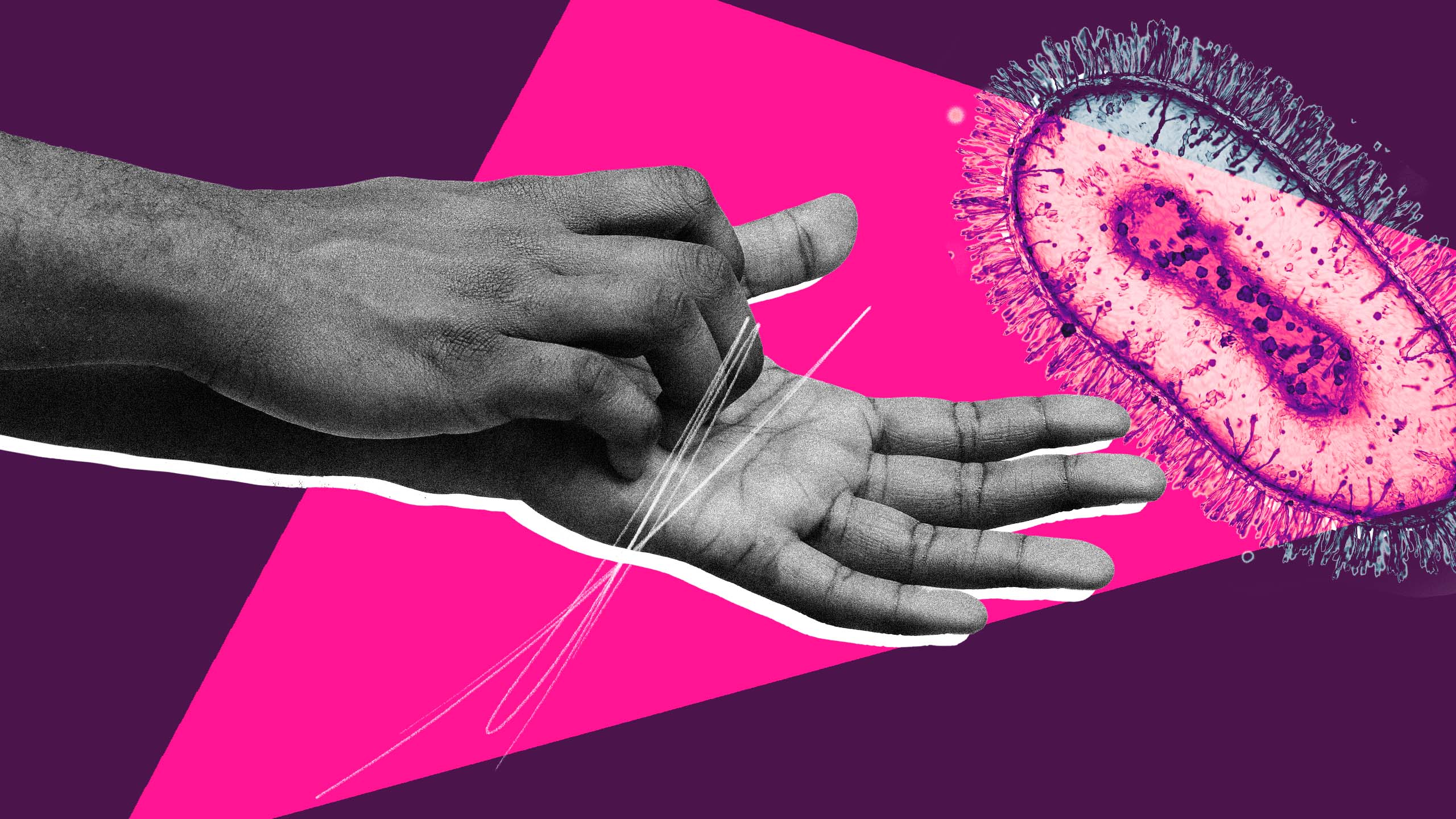A new report finds that Black and Latinx communities are disproportionately impacted by mpox, particularly queer men of colour.
Findings from the Centers for Disease Control (CDC), a government agency dedicated to public health, reveal that a majority of mpox patients in the U.S. are Black and Latinx, accounting for an estimated 58 percent of all cases. This is despite the fact that these groups only make up around 30 percent of the total U.S. population.
Although the data does not state how many Black and Latinx patients had engaged in same-sex sexual contact prior to transmission, the CDC report reveals that 99 percent of all male-identified mpox patients are men who have sex with men (MSM). These findings are in line with a July 21 study from the New England Journal of Medicine indicating that 98 percent of individuals who have contracted mpox are either gay, bisexual or queer men.
Researchers with the CDC did not comment on the reasons for the higher incidences of mpox among Black and Latinx people, but it’s likely related to compounding forms of marginalisation from people who live at the intersection of multiple minority identities. These groups, for instance, also face a higher risk of contracting HIV/AIDS.
In a statement accompanying last month’s findings, the report’s authors conclude that more should be done to prevent vulnerable groups from coming into contact with the mpox virus. “Public health efforts should prioritize gay, bisexual and other men who have sex with men, who are currently disproportionately affected, for prevention and testing, while addressing equity, minimizing stigma and maintaining vigilance for transmission in other populations,” researchers said.
The CDC report, which was last updated on July 28, is based on available data from 1,383 cases in 45 U.S. states, not including Washington, D.C. and Puerto Rico. The District of Columbia has the highest rate of mpox per capita, while New York and California have the largest number of cases overall.
Mpox has continued to spread both in the U.S. and across the globe in the days since the CDC findings were published. Currently, the CDC reports that there are 9,492 confirmed cases in the U.S., with Wyoming being the only state that has yet to record a single mpox transmission. Globally, there have been 31,800 reports of mpox in 89 countries, including 82 countries that have historically not recorded occurrences of the mpox virus.
These numbers include 957 cases in Canada, the eighth most among nations included in the CDC’s reporting. (The Public Health Agency of Canada reports a slightly higher number: 1,008, with 90 percent of all cases in the provinces of Ontario and Quebec.)
“You fight the virus. You don’t stigmatize the people who are infected with the virus.”
Although Canada has yet to declare the mpox outbreak a public health emergency, the Biden administration in the U.S. officially did so on August 4 amid criticisms of its allegedly slow response to the crisis. As the New York Times reports, the U.S. has just 1.1 million shots of the Jynneos vaccine, and the U.S. Food and Drug Administration has proposed issuing smaller vaccine doses to maximize the current supply. Under the proposal, individuals would receive one fifth of the typical dosage.
To achieve full vaccination, the CDC generally recommends that individuals receive two shots of the mpox vaccine spread 28 days apart.
Health authorities have urged queer men to limit sexual contact to prevent spreading the virus, but these recommendations have been criticized by some LGBTQ2S+ advocates. Mpox is not classified as a sexually transmitted infection and can be spread through skin-to-skin contact, contaminated surfaces and the mucus or respiratory secretions of individuals who have already contracted the virus.
According to a BuzzFeed News report, forms of contact like hugging and shaking hands are less likely to result in transmission.
While officials have cautioned that mpox is “not a gay disease,” the virus’s association with marginalized communities has already begun fuelling anti-LGBTQ2S+ stigma. Police in Washington, D.C. are investigating an attack on two men as a hate crime after they were reportedly assaulted by a group of teenagers who called them an anti-gay slur and referenced the mpox outbreak.
Dr. Anthony Fauci, the chief medical advisor to President Joe Biden, recently warned of the costs of scapegoating queer men for the crisis.
“You fight the virus,” he told NPR in an interview last month. “You don’t stigmatize the people who are infected with the virus. You reach out to the community. You make it very easy for them to have access to testing, to treatment and to vaccines, as opposed to making it a situation where people are afraid to come forward for those types of things.”


 Why you can trust Xtra
Why you can trust Xtra


